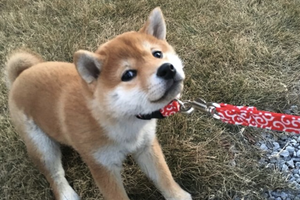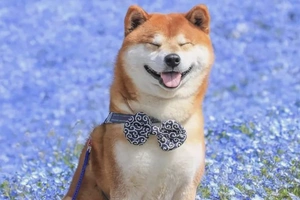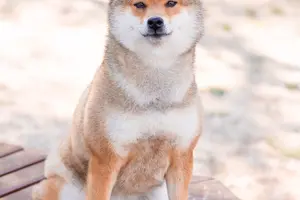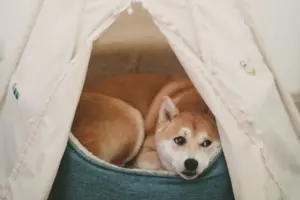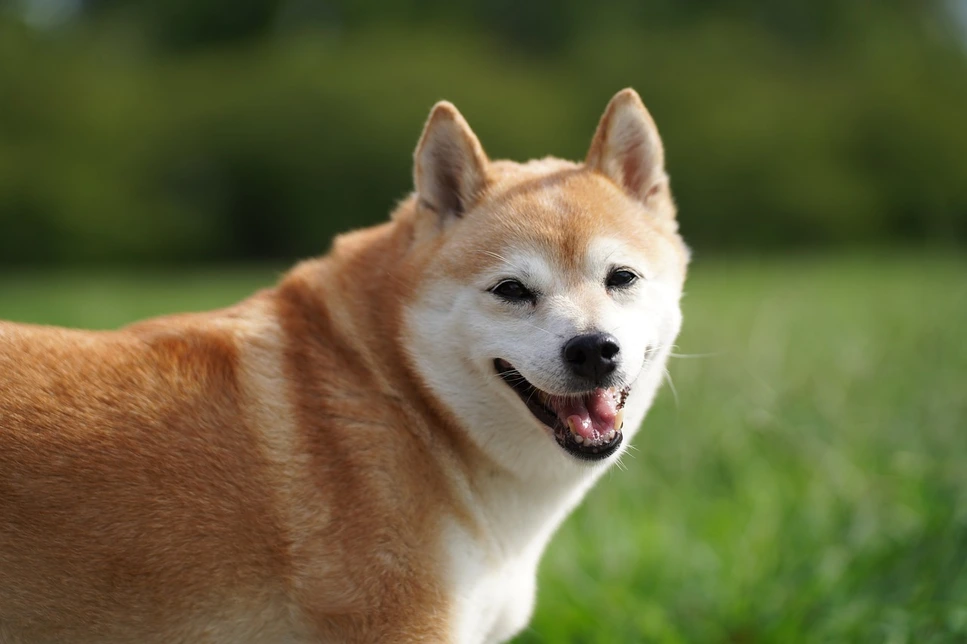
Shiba Inus are known for their quirky behavior, including their tendency to eat grass. While this behavior may seem strange, it is actually quite common among dogs. In fact, studies suggest that up to 80% of dogs engage in grass-eating behavior at some point in their lives. However, despite its prevalence, the reasons behind this behavior are not entirely clear. In this blog, we will explore the various theories about why Shiba Inus and other dogs may eat grass, as well as discuss the potential risks and benefits of this behavior.
Why Do Shiba Inus Eat Grass?
There are several theories about why Shiba Inus and other dogs may eat grass. One of the most common theories is that dogs may eat grass to relieve gastrointestinal discomfort. For example, if a dog’s stomach is upset, they may eat grass to induce vomiting or to help soothe their digestive system.
Another theory is that dogs may eat grass as a natural source of fiber. In the wild, dogs would consume plant matter as part of their diet, and eating grass may be a way for them to supplement their fiber intake.
Some experts also believe that dogs may eat grass simply because they enjoy the taste or texture. Grass can be a novel and interesting item for dogs to explore, and some dogs may develop a preference for it.
It’s important to note that not all dogs who eat grass are necessarily experiencing a medical issue or nutritional deficiency. In many cases, grass-eating behavior is simply a normal part of a dog’s behavior repertoire. However, if your Shiba Inu is eating grass excessively or seems to be experiencing other symptoms, it’s important to speak with your veterinarian to rule out any underlying health issues.
Is Eating Grass Safe for Shiba Inus?
While grass-eating behavior is generally considered to be harmless, there are some potential risks to be aware of. One concern is that the grass may have been treated with pesticides or other chemicals, which could be harmful if ingested by your Shiba Inu. Additionally, some dogs may be allergic to certain types of grass or may experience gastrointestinal upset if they eat too much of it.
If you notice that your Shiba Inu is eating a lot of grass or seems to be experiencing any unusual symptoms, it’s important to speak with your veterinarian. They can help you determine whether your dog’s grass-eating behavior is cause for concern and can provide advice on how to manage the behavior safely. In some cases, your veterinarian may recommend switching your dog to a different type of diet or may suggest a supplement to help address any nutritional deficiencies that may be contributing to the behavior.
What Should You Do if Your Shiba Inu Eats Grass?
If you notice that your Shiba Inu is eating grass, there are several steps you can take to manage the behavior. First, it’s important to make sure that the grass your dog is eating is free of pesticides and other harmful chemicals. You may also want to consider providing your dog with alternative forms of stimulation, such as toys or puzzle feeders, to help reduce their boredom and prevent them from turning to grass-eating as a form of entertainment.
If your Shiba Inu is eating grass excessively or seems to be experiencing other symptoms, such as vomiting or diarrhea, it’s important to speak with your veterinarian. They can help you determine whether there may be an underlying health issue contributing to the behavior and can provide advice on how to manage the behavior safely.
In some cases, your veterinarian may recommend a change in diet or may suggest a supplement to help address any nutritional deficiencies that may be contributing to the behavior. They may also recommend working with a professional dog trainer or behaviorist to help modify the behavior and encourage more appropriate forms of play and exploration.
Other Strange Behaviors of Shiba Inus
Shiba Inus are known for their quirky personalities and unique behaviors. In addition to grass-eating, some other strange behaviors that Shiba Inus may exhibit include:
-
Screaming: Shiba Inus are known for their distinctive scream, which can be triggered by excitement, frustration, or other strong emotions.
-
Prey drive: Shiba Inus have a strong instinctual drive to hunt and may chase after small animals or even insects.
-
Aloofness: Shiba Inus can be independent and aloof, and may not always be interested in interacting with their human family members.
While these behaviors may seem strange or challenging to manage, they are all normal parts of the Shiba Inu’s behavior repertoire. With patience and training, you can learn to understand and manage your Shiba Inu’s quirky behaviors in a way that is safe and enjoyable for both you and your furry friend.
Training Tips for Shiba Inus
Training is an important part of managing your Shiba Inu’s behavior, whether they are exhibiting grass-eating or other quirky behaviors. Here are some tips for training your Shiba Inu:
-
Use positive reinforcement: Shiba Inus respond well to positive reinforcement, such as treats and praise. Use these rewards to reinforce good behavior and encourage your dog to repeat it.
-
Start early: Early socialization and training are key to managing your Shiba Inu’s behavior. Start training your dog as soon as possible and expose them to a variety of people, animals, and environments to help them become well-adjusted and confident.
-
Be consistent: Consistency is key when it comes to training your Shiba Inu. Use the same commands and rewards every time you train, and make sure that everyone in your household is on the same page.
-
Keep training sessions short: Shiba Inus have short attention spans, so it’s important to keep training sessions short and focused. Try to train for just a few minutes at a time, several times throughout the day.
-
Seek professional help if needed: If you are struggling to manage your Shiba Inu’s behavior or are experiencing any challenges with training, consider working with a professional dog trainer or behaviorist who can provide guidance and support.
By using these training tips and being patient and consistent, you can help your Shiba Inu become a well-behaved and happy member of your family.
In conclusion, grass-eating behavior is a common and often harmless behavior among Shiba Inus and other dogs. While the reasons behind this behavior are not entirely clear, it is believed to be related to a variety of factors, including nutritional deficiencies, boredom, and instinctual behavior.
If your Shiba Inu is eating grass, it’s important to make sure that the grass is free of harmful chemicals and to monitor your dog for any signs of illness or discomfort. You may also want to consider providing your dog with alternative forms of stimulation and engaging in training to help manage the behavior.
Remember, every dog is unique and may exhibit their own quirky behaviors. By understanding and working with your Shiba Inu’s behavior, you can help them live a happy and healthy life as a valued member of your family.
Additional Resources
If you are interested in learning more about Shiba Inus and their behavior, there are several resources available to help you. Here are some links to check out:
-
The Shiba Inu Club of America: This organization provides information and support for Shiba Inu owners, as well as resources for finding reputable breeders.
-
The American Kennel Club: The AKC provides a wealth of information on dog breeds, including Shiba Inus.
-
The Association of Professional Dog Trainers: This organization provides resources and support for professional dog trainers and offers a directory of certified trainers.
-
The Whole Dog Journal: This publication provides information on dog health and nutrition, as well as training tips and advice.
-
Your local veterinarian: Your veterinarian is a great resource for information on your Shiba Inu’s health and behavior, and can provide personalized advice and support.
By utilizing these resources and staying informed about your Shiba Inu’s behavior and needs, you can help your furry friend live a happy and fulfilling life.

